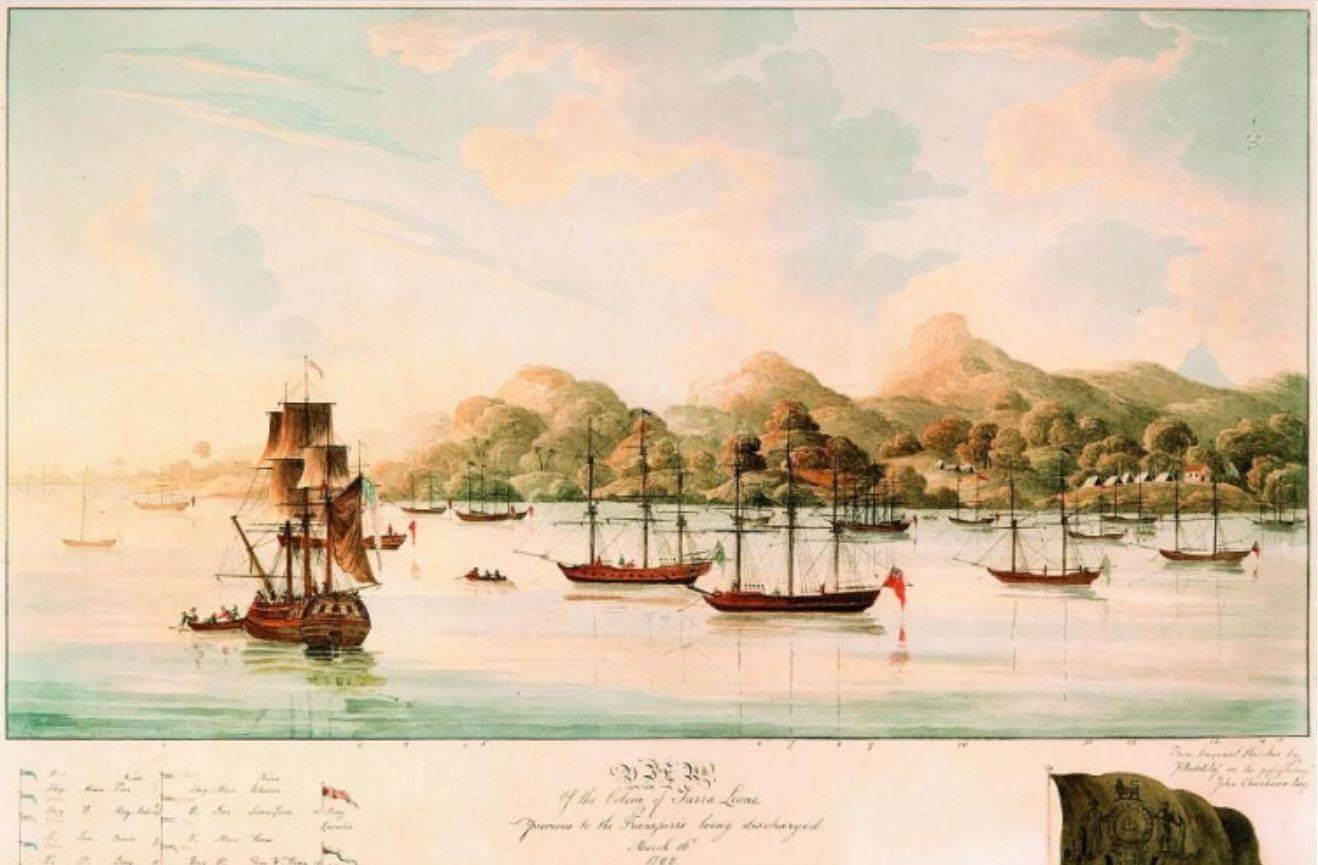Government of Canada recognizes the national historic significance of the Black Migrations to Sierra Leone (1792 and 1800)
The migrations exemplify the hardships many Black Loyalists and Jamaican Maroons faced in the Maritimes
GATINEAU, QC, June 14, 2023 /CNW/ – National historic designations encourage us to acknowledge both the triumphs and the struggles that helped define Canada, and help us reflect on how to build a more inclusive society for present and future generations.
Today, the Honourable Steven Guilbeault, Minister of Environment and Climate Change and Minister responsible for Parks Canada, announced the designation of the Black Migrations to Sierra Leone as an event of national historic significance under Parks Canada’s National Program of Historical Commemoration.
The migrations of Black Loyalists and Jamaican Maroons to Sierra Leone exemplified the frustrations and disillusionment of self-emancipated and free people of African descent in Nova Scotia and New Brunswick. The first to leave in 1792 were 1,196 formerly enslaved people of African descent who settled in Nova Scotia after supporting Britain during the American Revolutionary War (1775–1783). More than 500 Jamaican Maroons, who had been exiled to Nova Scotia after the second and final Maroon War, followed the Black Loyalists to Sierra Leone in 1800.
Both groups endured hardships and discrimination while in Nova Scotia and New Brunswick including unequal treatment under the law and constant threats of mob violence and (re-)enslavement. Many of the Black Loyalists had been promised farmland that they never received, forcing them into exploitative wage labour, sharecropping, or indentured servitude. The Jamaican Maroons faced significant pressures to abandon traditional Akan social, spiritual, and cultural practices, and undertake hard physical labour on building projects and farms. Ultimately, their rejection of long-term settlement had a lasting impact on diasporic African communities in the Maritimes, not least by significantly reducing the number of free people of African descent in the colonies.
The Government of Canada, through the Historic Sites and Monuments Board of Canada, recognizes significant persons, places, and events that have shaped Canada. Sharing these stories helps foster understanding and reflection on the diverse histories, cultures, legacies, and realities of Canada’s past and present.
The designation process under Parks Canada’s National Program of Historical Commemoration is largely driven by public nominations. To date, more than 2,200 designations have been made nationwide. To nominate a person, place or historic event in your community, please visit the Parks Canada website for more information: https://parks.canada.ca/culture/designation/proposer-nominate.
“Recognizing the national historic significance of the Black Migrations to Sierra Leone acknowledges the frustrations of the Black Loyalists and Jamaican Maroons after facing an inhospitable reception in the Maritimes. The Government of Canada is committed to ensuring that we have opportunities to learn about the full scope of our history, including the tragic and shameful periods that are part of our collective past. Commemoration is about recognizing the many diverse aspects of our history and committing to do better in the future.”
The Honourable Steven Guilbeault
Minister of Environment and Climate Change and Minister responsible for Parks Canada
“I am delighted that my successful advocacy for Black representation over years has resulted in this important symbol. This designation adds to the complexity of the experience of freedom for enslaved and formerly enslaved Africans in Canada, their experience and their approach to ameliorating their condition. Their resilience was amplified by their advocacy and reconnects them to Africa.”
Rosemary Sadlier
OOnt, social justice advocate, consultant and author
“This designation honours the memory of those ancestors who made the momentous journeys, and is truly a milestone in the history of Canada, Sierra Leone, and the Black Atlantic. It recognizes the vision, steadfastness, and courage of the Black Loyalists and Maroons to carve out for themselves spaces of freedom and self-actualization.”
Afua Cooper
Killam Research Chair, Dalhousie University
“The designation of the Black Migrations to Sierra Leone as an event of national historic significance allows us time to reflect on some of the injustices that have been experienced by Black people in Canada but also their unwavering strength and endurance. I encourage everyone to learn more about this designation and its important place in the history of Canada.”
Arielle Kayabaga
Member of Parliament for London West and Chair of the Black Caucus
- The migrations resulted in the creation of unique and invaluable records of the lives and experiences of the Black Loyalists and Jamaican Maroons.
- Approximately 3,500 Black Loyalists were evacuated to Nova Scotia and New Brunswick after the American Revolutionary War. This represented the largest influx of self-emancipated and free people of African descent those British colonies had ever experienced. The Government of Canada recognized the Black Loyalist Experience as an event of national historic significance in 1994.
- While most of the Jamaican Maroons left Nova Scotia for Sierra Leone in 1800, it is widely believed that a few individuals stayed behind. Their continued presence is suggested by the surnames, accents, idioms, customs, oral histories, and traditions of African Nova Scotians. The Government of Canada recognized the Jamaican Maroons in Nova Scotia as an event of national historic significance in February 2023.
- Canada officially recognizes the United Nations International Decade for People of African Descent, which began in 2015 and will be observed until 2024. The International Decade promotes greater global recognition of and respect for the cultures, history and heritage of people of African descent.
- Created in 1919, the Historic Sites and Monuments Board of Canada advises the Minister of Environment and Climate Change regarding the national significance of persons, places, and events that have marked Canada’s history. Together with Parks Canada, the Board ensures that subjects of national historic significance are recognized under Parks Canada’s National Program of Historical Commemoration and these important stories are shared with Canadians.
- Parks Canada is committed to working with Canadians in our efforts to tell broader, more inclusive stories in the places that it manages. In support of this goal, the Framework for History and Commemoration outlines a comprehensive, and engaging approach to sharing Canada’s history through diverse perspectives, including shedding light on tragic and difficult periods of Canada’s past.
SOURCE Parks Canada




